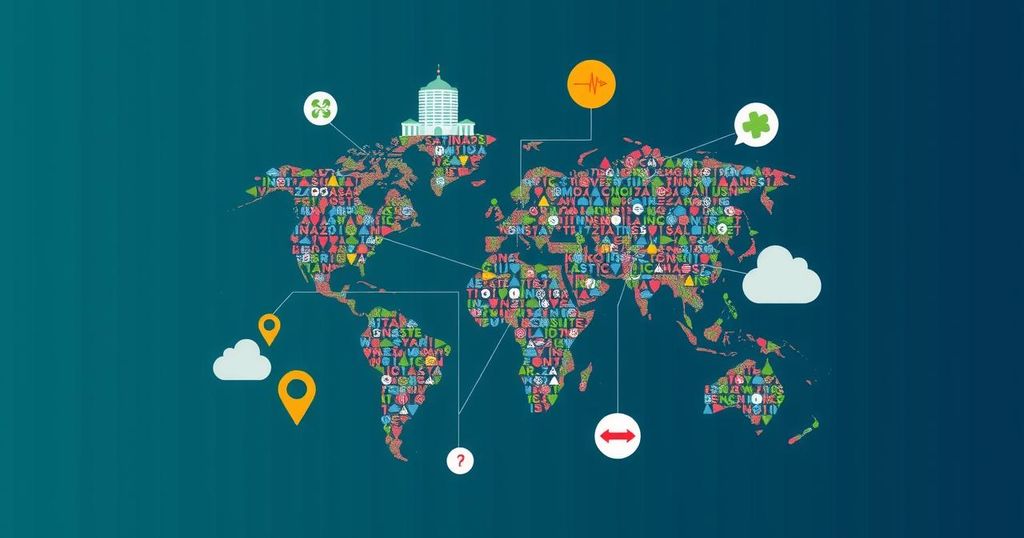The World Evidence-Based Healthcare Day emphasizes the importance of data-driven healthcare solutions, with this year’s focus on the intersection of climate and health. The upcoming Future of Health Conference aims to discuss strategies for building resilience against climate impacts on health, particularly in Nigeria. By examining successful evidence-based healthcare practices from other nations, Nigeria seeks to foster collaborations that address both current and future health challenges related to climate change.
The World Evidence-Based Healthcare Day (EBHC) is annually celebrated on October 20th with the aim of promoting awareness regarding the necessity for data-driven healthcare policies that enhance global health outcomes. This year’s theme, “Beyond Health: From Evidence to Action,” underscores the importance of collaborative efforts across sectors to build resilient health systems, particularly in response to pressing global issues such as climate change. Over nearly three decades, advocates of EBHC have consistently highlighted the imperative of collaborative approaches to healthcare, emphasizing that the challenges posed by climate change require unified action from diverse sectors including health, environmental science, policy making, and technology. To further the discourse on intersectoral collaboration, Nigeria Health Watch is hosting the 2024 Future of Health Conference, focused on the theme “From Evidence to Action: Building Resilience at the Climate-Health Nexus.” The conference aims to address the interconnectedness of climate change and health, discussing strategies to mitigate the adverse health effects arising from environmental changes. Nigeria is particularly susceptible to the ramifications of climate change, facing several health challenges exacerbated by extreme weather events. Rising temperatures and increased flooding have impacted food security and facilitated the spread of diseases such as malaria and cholera. Recent studies have indicated that catastrophic floods have severely strained Nigeria’s healthcare infrastructure, particularly in rural regions where healthcare access is already compromised. The Future of Health Conference will highlight innovative and evidence-based approaches aimed at tackling these climate-related health issues, pushing for the integration of research into effective public health strategies. The Nigerian experience with vector-borne diseases, particularly concerning malaria, underscores the importance of utilizing climate data to forecast mosquito breeding patterns and preempt outbreaks. Furthermore, urban development informed by comprehensive climate and health data can help mitigate flood risks, especially in densely populated cities like Lagos. Nigeria can look towards models of effective evidence-based healthcare strategies employed in countries like Rwanda, which has successfully utilized community health workers to improve health outcomes, or Kenya’s climate-smart agriculture strategy, which enhances resilience while minimizing environmental impact. South Africa’s deployment of real-time surveillance systems demonstrates the value of data-driven action. For Nigeria to emulate such successes, it is imperative to foster enhanced collaboration among researchers, healthcare practitioners, climate specialists, and policymakers. This synergy will facilitate the adoption of evidence-based approaches that not only address current health challenges but also bolster resilience against future adversities. The upcoming Future of Health Conference presents an opportunity to advocate for productive discussions on the climate-health interface and to champion evidence-informed policy solutions.
World Evidence-Based Healthcare Day serves as an annual reminder of the critical need for evidence-based practices in healthcare. With conditions such as climate change posing significant threats to health worldwide, intersectoral collaborations have emerged as pivotal in responding to these challenges. The gathering of healthcare professionals, researchers, and policymakers at events like the Future of Health Conference illustrates a collective push towards innovative, data-informed solutions for public health amidst climate constraints, particularly within the Nigerian context.
In summary, World Evidence-Based Healthcare Day highlights the urgent need for evidence-driven healthcare policies as a means of addressing the dual challenges of health and climate change. This year’s Future of Health Conference will provide a pivotal platform for examining the integration of climate considerations into health policies, drawing lessons from global practices while focusing on Nigeria’s specific vulnerabilities. Strengthening multisectoral collaborations will be essential in developing effective strategies that safeguard public health and promote resilience against future climate threats.
Original Source: nigeriahealthwatch.medium.com






